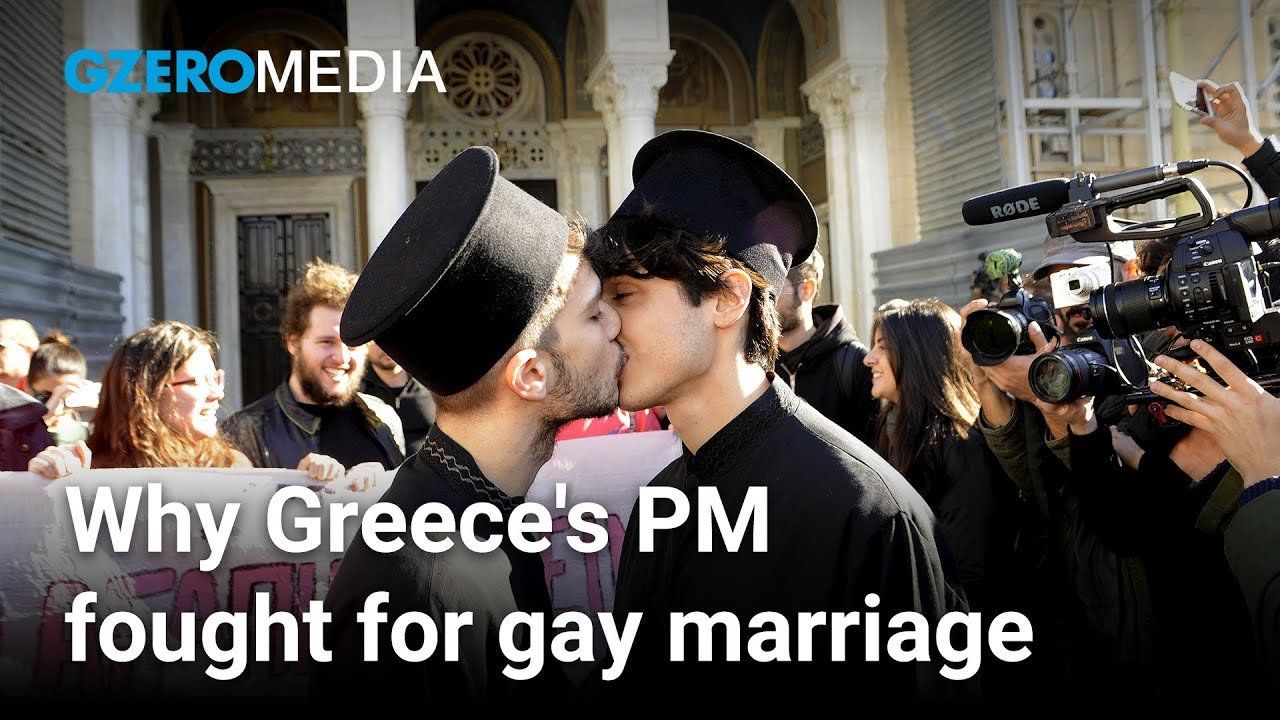GZERO World Clips
Why Greek PM Mitsotakis pushed for same-sex marriage despite strong opposition

Why Greece PM Mitsotakis defied the opposition to push for same-sex marriage | GZERO World

On GZERO World, Ian Bremmer asked Greek Prime Minister Kyriakos Mitsotakis for his reaction to Greece becoming the first Orthodox Christian country to legalize same-sex civil marriage. Greece’s parliament voted 176-76 to approve the legislation, which also legalizes adoption for same-sex families, despite opposition from the influential Greek Orthodox Church and from within Mitsotakis’ own center-right New Democracy party.
“I knew from the beginning that there are a lot of people within my party that did not agree with this,” Mitsotakis tells Bremmer, “But at the end of the day, human rights is about protecting smaller groups. Otherwise, you have the tyranny of the majority.”
Marriage legalization is a watershed moment for Greece’s LGBTQ+ community, which has been fighting for equal rights and recognition for decades. While opinion polls suggest that most Greeks support the new reform by a narrow margin, the conservative Orthodox Church is still a powerful force in Greek society. That, Mitsotakis explained, is why consensus-building was crucial for passing legislation.
“We worked very hard to explain to people what we’re doing, and we fully respected those who disagreed,” Mitsotakis said, “People understand it’s something that helps a few people and doesn’t threaten anyone, that’s why it’s so important.”
As expected, the Supreme Court struck down the bulk of Donald Trump's sweeping “Liberation Day” tariffs as illegal … and almost nothing changed.
Chris, an Army veteran, started his Walmart journey over 25 years ago as an hourly associate. Today, he manages a Distribution Center and serves as a mentor, helping others navigate their own paths to success. At Walmart, associates have the opportunity to take advantage of the pathways, perks, and pay that come with the job — with or without a college degree. In fact, more than 75% of Walmart management started as hourly associates. Learn more about how over 130,000 associates were promoted into roles of greater responsibility and higher pay in FY25.
Somewhere in the Donbas region, Ukrainian soldier Artem Bondarenko says he hasn’t slept through the night in months as he defends Eastern Ukraine.
In the latest episode of Vladimir Putin and Xi Jinping's hit wellness podcast This Authoritarian Life, we learn how positive communication patterns can break negative cycles in our relationships -- especially our relationships with Iran, Syria, Venezuela, and Cuba. #PUPPETREGIME